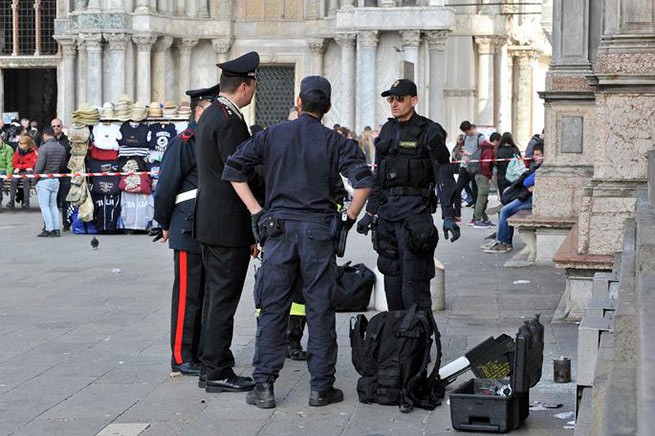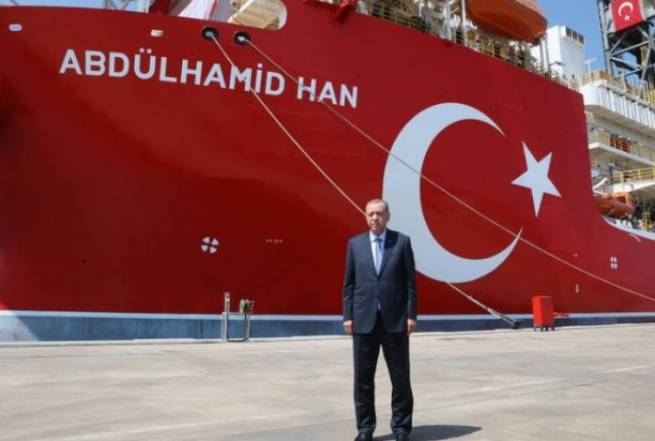The coming year will be key for Turkey: the celebration of the 100th anniversary of the Republic of Turkey, presidential and parliamentary elections. But will it change EU its position towards Ankara?
About this and more – Seda Gürkan, Lecturer in Political Science and European Studies at the Faculty of Philosophy and Social Sciences, Research Fellow at the Institute for European Studies at the Free University of Brussels in material EURACTIV.
Elections next year will be decisive for Turkey, they can change its relationship with the EU. Against the backdrop of its rapid democratization, the EU General Affairs Council in June 2018 effectively suspended negotiations on the accession and modernization of the EU-Turkey Customs Union. And the Turkish government is already less interested in genuine relations with the EU, as they will require comprehensive domestic reforms. The resulting impasse led to a relationship that became largely transactional.
The results of the 2023 elections are now “hanging in the air”. Recent polls show that Cumkhur, or the People’s Alliance, made up of Recep Tayyip Erdogan’s AKP (Justice and Development Party) and its ultra-nationalist ally MHP (Nationalist Movement Party), may lose the upcoming race. But it remains a mystery whether the opposition parties can agree on a candidate to challenge Erdogan, or present an electoral program that will inspire Turkish voters.
In the two decades of AKP rule, Turkey has gone from a dysfunctional democracy to an autocracy. The ruling elite increasingly relied on nationalist, conservative and majoritarian discourse. The nationalist wave became more visible after the June 2018 elections, when the ultra-nationalist MHP and the AKP formed an electoral alliance. The majority understanding of ruling elite governance exacerbated ethnic, religious and political divisions leading to political and social polarization. Since the failed coup in 2016, repressive measures taken under the state of emergency have become a permanent feature of Turkey’s domestic politics, creating an authoritarian country in a short time.
Internal changes also had negative foreign policy consequences: Turkey has become a more assertive regional power and follows an increasingly one-sided foreign policy line. Examples are Turkey’s recent operations in Northern Syria, drilling operations in the Eastern Mediterranean since 2019, and its involvement in Libya, which was conducted with limited or no consultation with Turkey’s Western allies. At the same time, sometimes Turkey’s foreign policy preferences contradicted the interests of the EU, such as its non-alignment with EU sanctions against Russia.
On the other hand, Turkey’s growing military industry and the rising tide of nationalism have created fertile ground for these unilateral foreign policy actions, the predominantly anti-Western, anti-European foreign policy discourse of the ruling elite. With Turkey’s transition to a presidential system in 2018, its foreign policy has become less institutionalized, with the presidential palace monopolizing decision-making. This has left Turkey’s position vulnerable to perceived changes, and made the country an unreliable and unpredictable player in international relations.
What could be the relationship between the EU and Turkey in the new year? There are two possible scenarios, two possible outcomes for Turkish policy and relations between the European Union and Ankara.
First. In the event that the Erdogan-led People’s Alliance wins the elections, it is likely to continue the existing domestic and foreign policy. In return, the EU will broaden its pragmatic approach to Turkey, emphasizing Turkey as a partner and prioritizing relationships based on interests over values. But as long as Turkey reinforces authoritarian tendencies in this scenario, the EU and member states will still be reluctant to engage with Turkey. A relationship based on EU interests and priorities could, in turn, further strengthen Turkey’s autocratic power, making it even more unpredictable and assertive.
Second. If the opposition bloc manages to break Erdogan’s 20-year rule, it is quite realistic to expect a process of normalization of Turkish politics. Undoubtedly, such a reform will take a long time, as the new government will inherit the inefficient management system and economic problems from the AKP. Yes, and ideological differences between the six opposition parties can interfere with the functioning of the government. Differences can be especially noticeable in foreign policy regarding the future of Syria, relations with Russia or Greece, Turkey’s participation in the Eastern Mediterranean.
However, it is very likely that the new reform process, although slow, will be able to change the EU’s attitude towards Turkey. This could help EU member states agree on a more positive agenda by launching specific incentives to support Turkey’s reform process, such as visa liberalization or a modernized customs union. In this scenario, the EU’s ability to involve Turkey in the reform process would add speed and resilience.
On the one hand, this requires establishing trust in the European Union in Turkish society, convincing the public that the reforms will lead to close integration of Turkey with the EU. On the other hand, it would mean restoring a system of conditions, including careful monitoring, clear conditions and reliable incentives. Only then will the EU be able to engage Turkey in dialogue, strengthen mutual trust, deepen the relationship and restore its faded influence over Turkey in the post-Erdogan era.







More Stories
Today the world remembers the accident at the Chernobyl nuclear power plant
Poll: which European countries are ready to defend their homeland to the last
K. Mitsotakis announced readiness for the fire season